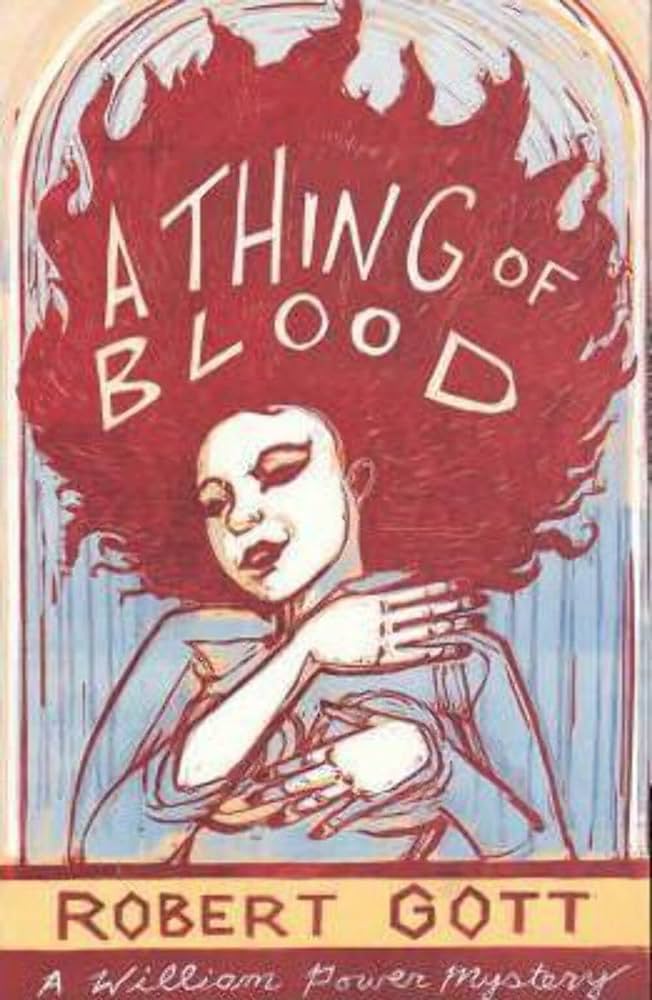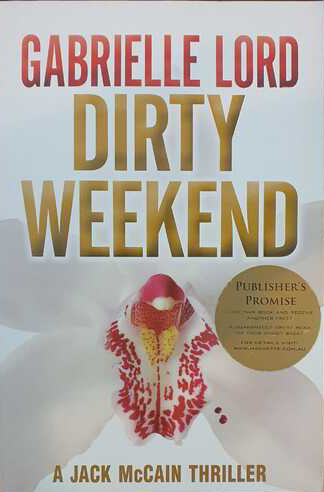
- Free Article: No
- Contents Category: Fiction
- Review Article: Yes
- Article Title: Cool crime
- Online Only: No
- Custom Highlight Text:
Garry Disher’s Snapshot continues his police procedural series about Mornington Peninsula detective Hal Challis, begun with Dragon Man in 1999 (before that, Disher wrote an excellent series of thrillers about a career criminal named Wyatt, starting with Kickback, 1991). Snapshot is 100 pages longer than Dragon Man, but, paradoxically, it is much more pared back, leaner and smarter about what a police procedural (PP) can be.
- Book 1 Title: Snapshot
- Book 1 Biblio: Text, $29.95 pb, 337 pp, 1920885722
- Book 1 Cover Small (400 x 600):

- Book 1 Cover (800 x 1200):

- Book 2 Title: A Thing of Blood
- Book 2 Biblio: Scribe, $27.95 pb, 276 pp, 1920769587
- Book 2 Cover Small (400 x 600):

- Book 2 Cover (800 x 1200):

- Book 3 Title: Dirty Weekend
- Book 3 Biblio: Hodder, $32.95 pb, 376 pp, 0733618529
- Book 3 Cover Small (400 x 600):

- Book 3 Cover (800 x 1200):

Snapshot knows and deploys the elements of the PP for maximum effect: institutional, hierarchical, procedural and personal tensions within the department; interpretation versus analysis, surrounded by ambiguity and an excess of information; the problems, absences and desires in the personal lives of the police staff (mid-career, middle-aged, having lost partners, disillusioned, lonely, self-critical, tentative about new relationships) and how they are projected onto or paralleled by those in the larger (and suspect) constellation of characters; and how all this is used to examine a complex community – with a coolness, an observer’s distance and an understatement this side of wistfulness.
Disher uses this established popular-literature form to write an autumnal, wintry novel about the Peninsula – the shades and nuances of its political, social, and economic patterns – and about the emotional seasons of his characters. He documents the differences of Peninsula life from that in Melbourne’s metropolis; he weaves in refugee detention centres, the Julie Ramage–provocation murder case, David Hookes, al Qaeda, industrial relations affecting police working conditions. Quotes on the cover liken Disher to several crime writers. The one that fits is Elmore Leonard: Disher shifts his interior third-person narrative from character to character as precisely and effectively as does Leonard.
Gabrielle Lord’s début, Fortress (1980), established her as a major novelist using crime material. She went on to write several stand-alone novels and has recently turned to series characters. Dirty Weekend is her third book about forensic scientist Jack McCain. Her story, set in Canberra during a metaphoric drought, also uses familiar PP elements: mid-career police protagonist, with a lost marriage, who is unsure about how to handle his private life. McCain, a crime-scene scientist, is in charge of a forensic department. A disliked former colleague’s estranged wife is murdered. That old acquaintance calls and asks McCain, outside normal procedure, to take an active rather than supervisory role in the investigation. A second (unrelated?) murder occurs, and McCain is again asked to investigate and does. Lord knows a lot about current forensic science and investigatory procedures and shares it with readers.
Two key mechanisms drive this book. First, how cleverly a killer manipulates PP systems to escape detection. Second, and given equal space, McCain’s new life partner’s clearly expressed dissatisfaction with how much time he is giving to the job. Using these two mechanisms against each other, Lord constructs McCain as a character who is trapped, a prisoner and victim of his genre (PP) and the forces it unleashes: that is, an over-riding compulsion to solve the criminal investigation at the expense of his relationship.
The crime plots (shifts, surprises, unforeseen relationships) work well. But the novel pushes and rushes, like somebody at a party who tells you more than you want to know about them. Huge amounts of detail come fast. There is much dialogue about the lives of offscreen characters, and new characters are still introduced well into the middle of the book. Take notes.
The lightest of these books (as you might expect from the creator of the Naked Man newspaper cartoon series) is Robert Gott’s A Thing of Blood. This is the second in his William (Will) Power series. Power is a semi-employed classical actor who has quite gratuitously decided that he is also a private investigator, against all the evidence. The story takes place in Melbourne during 1943, at the height of World War II, an interesting time and place indeed, and one that Gott evokes well – as he does the style and tics of period detective fiction, without pastiche or parody.
Power returns to Melbourne, to lick his wounds after a débâcle in Queensland. He goes back to his widowed mother’s Carlton house, shared with his brother and sister-in-law, the harridan Darlene. Desperate, Power moves out to a flat rented to him by Paul Clutterbuck, who is sophisticated, charming, well-connected, able to obtain anything on the black market. Paul flatters Power into doing detective work for him – following his ex-wife and her paramour – and, before long, Clutterbuck has Power helping him get rid of an inconveniently murdered body. At about this time, Darlene is violently abducted from the family home and assumed dead. Power looks into this as well.
The book is designed as entertainment and succeeds. It is brisk, breezy, cheeky and just camp enough. It involves a right-wing anti-Catholic plot to assassinate Archbishop Daniel Mannix during Sunday Mass at St Patrick’s Cathedral; military intelligence agents; the making of propaganda films; Private Leonski; and wartime restrictions on the depth of water permitted in a bathtub. It plays games with character names: Will Power; his smarter brother Brian Power; the unlikeable American wife-stealer Captain Spangler Brisket (he meets an onomastically suitable end); Mary Rose Shingle (who is a few short of a finished roof). Told in Power’s first-person narration, the novel keeps up a good line in bitchy theatrical descriptions and one-liners, moves quickly and never quite succumbs to the temptation of the cute or cosy. Gott’s fine vocabulary and word choice are part of the entertainment as well.
It has to move fast and finish quickly, being a one-joke story. The joke is that our hero and narrator is a completely clueless, gormless, self-deceiving no-hoper, who couldn’t detect his way out of a paper bag. He is given an undercover mission among special forces training in Darwin. His cover: a light-entertainment troupe for the boys. His response: ‘I only half-heard these last words. My head was swimming with the glorious prospect of bringing Timon of Athens to the Shakespeare-starved troops. All I could hear at that moment was thunderous applause.’ Daffy Duck lives.


Comments powered by CComment